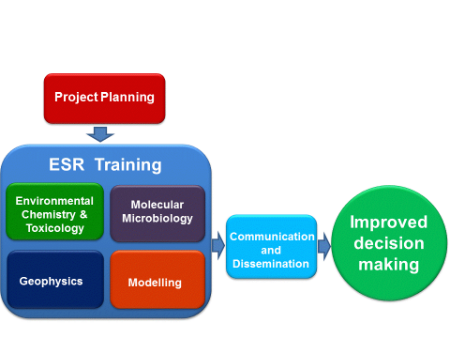Project details

REMEDIATE
REMEDIATE is a Marie Skłodowska-Curie Action (MSCA) funded Innovative Training Network (ITN). The network is made up of 8 beneficiaries from five EU member states - the UK, Ireland, Germany, Denmark, and Italy - and 18 partner organisations. All participants in the project are committed to providing innovative research and training for more cost effective and sustainable remediation of contaminated land.
The network is a multidisciplinary collaboration between internationally renowned research teams from academia and industry, each with complementary expertise in a wide range of site investigation and risk assessment technologies.
12 Early Stage Researchers (ESRs) have been recruited and are taking part in a structured and integrated research and training programme to provide them with a highly specific blend of personalised technical and transferable skills.
Each research project is designed to benefit the contaminated land sector through development of techniques and tools across a range of disciplines relating to site investigation and risk assessment, to provide better informed solutions for remediation.
The researchers are getting joint supervision from both academic and industry mentors, which will enhance their career prospects.
The REMEDIATE network will strengthen and enhance existing collaborations between the participating beneficiaries and partner organisations resulting in a cohesive and dynamic network.
The outputs will be a new generation of highly mobile, creative and innovative entrepreneurs with the skill sets necessary to address the technical, economic and social challenges facing the contaminated land sector in Europe, both now and in the future.
The network has received funding from the European Union's Horizon 2020 Programme for research, technological development and demonstration under grant agreement n.643087. REMEDIATE is co-ordinated by the QUESTOR Centre at Queen's University Belfast.
Work Packages
WP2: Environmental chemistry and toxicology approaches to site assessments
WP3: Rapid molecular microbiology assessment approaches to assessing bioremediation
WP4: Geophysical approaches to site assessment


